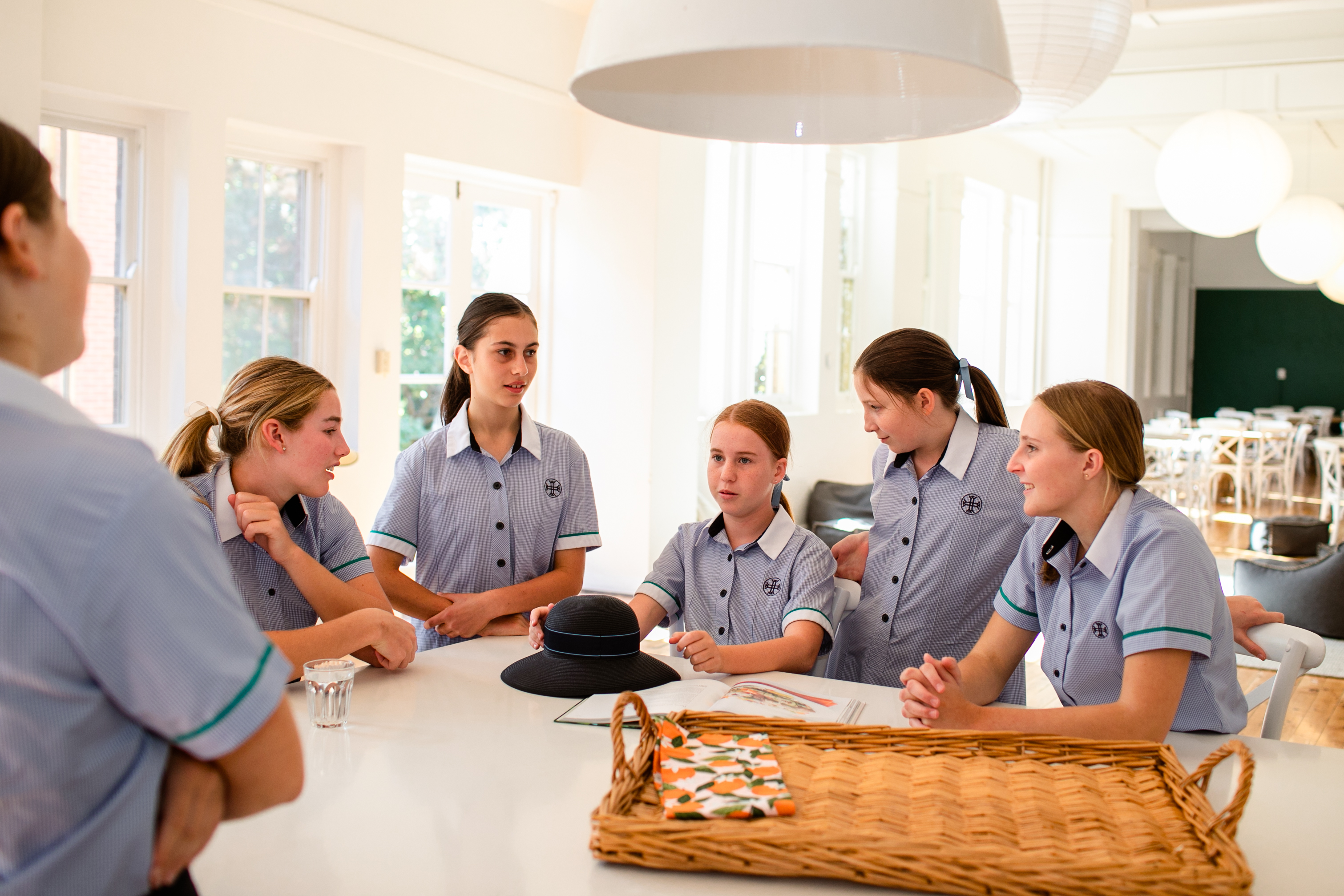
Boarding Schools are Special Places
Register
July 4, 2025 • 5 min read
Boarding in Australia: A Story of Opportunity
From Principal, Dr Andrew Parry
At their essence, boarding schools are about community – and whether you are a boarding or a day family – the presence of boarding brings something extra and quite special to the school experience. As part of the Kinross Wolaroi community, our boarding students and their families are contributing to a thriving community with a common belief in the great value of a quality education.

There are around 23,000 children boarding in Australia, and independent schools like ours are by far the largest providers, with some 140 schools providing boarding for close to 15,000 students.¹
Boarding in Australia, unlike in some countries, is less about prestige and more about opportunity. Decisions about boarding are often unavoidable for families who live too far from the nearest school or for whom local schools cannot offer the type of educational opportunities they seek.
According to Richard Stokes, CEO of the Australian Boarding Schools Association, "76 percent of boarders in Australia are kids from rural and remote areas where they simply don’t have a local high school nearby, making boarding a necessity."
A Diverse and Inclusive Boarding Community
Today’s social profile of boarding school students may surprise some people. Boarders in independent schools represent a diverse group of students from a wide range of backgrounds, both domestic and international.
For example, boarding plays an important role in the education of many Indigenous students, with over 2,100 Indigenous boarders attending 120 independent schools across Australia. Proudly, Kinross Wolaroi is currently home to over 20 Indigenous students from all over NSW.
Academic Success and Life Readiness
Boarding is a decision that some parents worry over for years, yet there are distinct benefits despite the physical distance. Intuitively, you might think that boarders separated from their parents would be at a disadvantage, but research has found that boarders do as well as day students academically — and may even leave school better equipped for life, study and work.²
Studies have shown that boarding students recognise their ‘second home’ offers advantages such as ready access to tutoring, more activities, and the chance to develop closer friendships and better self-care skills than if they had been day students. Their parents often comment that their children have developed confidence, independence, social skills, and self-motivation.
Leadership, Belonging and Emotional Resilience
Our boarders are well represented in academic and extra-curricular achievement. They often take up leadership roles and, by the later years of senior school, tend to have a very positive and mature outlook on life.
According to clinical psychologist Jane Carmignani, “(boarders) become more cooperative learners, have more developed self-discipline and are generally better prepared for post-school study.”³
The boarding environment has also been shown to give boarders an extra sense of belonging, which can be protective against mental health issues, improves learning outcomes, and produces happier, more adaptable people.
Support Through Life’s Challenges
At Kinross Wolaroi, our focus is to help our boarders feel connected, listened to, valued and supported. When our families are facing adversity — be it drought, floods, fires, illness, or any of life’s other challenges — our role is to provide every student with a place that is safe and supportive.
For boarders, these family challenges can be complex. Research conducted by UNICEF⁴ during the last major drought uncovered that, in response to the demands on their family farms, many young people were forced to grow up prematurely. For some boarders, school provided a welcome release from the worries of home, while others felt guilty about not being there to help their family.
Our boarding staff are alert and receptive to such concerns. A strong three-way relationship between the school, parents and the child is nurtured to manage and support students while living away from their families.
What Boarding Parents Value Most
Recent research by the Independent Schools Association5 saw boarding parents list the following benefits of attending boarding school:
- Higher academic outcomes/increased opportunities – 71%
- Greater independence and self-reliance – 89%
- Increased opportunity for social interaction with peers – 77%
- Greater preparation for post-school environments – 65%
- Improved psychological resilience – 54%
- Increased tolerance and compassion – 52%
- Reduced burden of isolated living – 33%
- Reduced family and community pressures and responsibilities – 21%
A Transformative Experience That Lasts a Lifetime
Choosing boarding is a big decision — one that offers many powerful advantages for students both during their school years and beyond.
At Kinross Wolaroi School, boarders benefit from living on campus with direct access to our academic and co-curricular facilities, additional support from teachers and tutors, and a structured environment that promotes both learning and personal development. With fewer logistical barriers and no travel time, boarders are more consistently present at school — and decreased absenteeism is a clear and proven advantage over day students.
Boarding life nurtures greater independence, resilience and self-reliance, equipping students with essential life skills and helping them grow into confident, capable young adults. Research also shows that boarders enjoy strong psychological wellbeing — with measures such as emotional stability, life satisfaction, and sense of purpose comparable to their day student peers.
Friendships That Last Forever
One of the greatest rewards of boarding is the opportunity to form lifelong friendships. Living and learning together, students build deep, supportive relationships that shape their personal growth and enhance their school experience. In fact,83% of parents and students surveyed recently⁵ agreed that boarding school is a, "positive experience for most students."
Boarders also tend to be more involved in school life — with higher levels of participation in sport, music, clubs, and other co-curricular activities. This is partly due to their close proximity to campus resources, but also thanks to the wide variety of after-school programs specifically designed to enrich the boarding experience.

More Than a Place to Stay — A Place to Grow
At Kinross Wolaroi, our boarding program offers more than a place to live — it offers a community, a sense of belonging, and an environment where young people can thrive.
To care for someone’s child for a night is a significant responsibility; however, to be entrusted with the care of someone’s child during their formative years is both an enormous responsibility and a wonderful privilege.
Sharing in the growth and development of the young people in my care over the years has been one of the most rewarding experiences of my career.
1.https://isca.edu.au/about-independent-schools/about-independent-schools/boarding-schools/,2019
2. Martin, A.J., Papworth, B., Ginns, P., & Liem, G.A.D.(2014). Boarding school, academic motivation and engagement, and psychologicalwell-being: A large-scale investigation. American Educational Research Journal,51(5), 1107-1049.
3. https://lindastade.com/benefits-of-boarding/, ‘What arethe benefits of boarding school? Ask a psychologist’ (Interview with JaneCarmignani, Clinical Psychologist), 2017
4. In their own words: the hidden impact of prolongeddrought on children and young people, UNICEF, 2019
5. https://isa.edu.au/wp-content/uploads/2022/06/ISA-Report-Independent-Boarding-a-national-perspective.pdf,‘Independent Boarding – A National Perspective Report 26.05.2022’, IndependentSchools Australia



